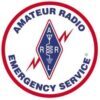KNW-137
Amateur Operation In Other Countries
Adapted from ARRL.ORG FAQ by Earl Pack, AE5PA
Amateurs sometimes visit other countries and naturally want to operate their amateur stations. The three types of reciprocal operating authority are:
- A European Conference of Postal and Telecommunications (CEPT) license;
- An International Amateur Radio Permit (IARP); and
- A reciprocal permit from a country which does not participate in either of these two multilateral agreements.
Always follow all of the communications rules of the country visited. To operate under CEPT or IARP, the amateur must be a licensee in the country of citizenship.
Canada is the exception to the above. The US and Canada share an automatic reciprocal operating agreement. US amateurs must carry proof of their US citizenship and their valid US license. Identification for US amateurs is the US call separated by a stroke and the appropriate Canadian prefix identifier (e.g. N1KB/VE3). For further information on US/Canadian operation, visit the RAC Web site.
In all other instances or as specified by the national licensing body, the prefix goes before the call sign.
1. European Conference of Postal and Telecommunications Administrations (CEPT) radio-amateur license — allows US Amateurs to travel to and operate from most European countries without obtaining an additional license or permit. For US citizens to operate an amateur station in a CEPT country, certain requirements of the CEPT European Radio Committee (ERC) must be met. Under the CEPT Agreement, to activate operating authority, a traveler would have to carry the following documents when traveling to a participating CEPT country:
- Bring their original US license. [Note: While FCC does not state that your original hardcopy license is a document you must carry in CEPT areas. The actual CEPT agreement the US agreed to indicates that US Amateurs will possess such a document so be sure to bring your FCC-issued original, hardcopy license document when you travel and operate in CEPT areas].
- Bring proof of US citizenship (generally in the form of a Passport)
- Bring a copy of the FCC’s Public Notice (this notice contains its information in three languages, English, French and German) which details what US Amateurs need to consider, and bring with them, when traveling to a CEPT country.
- Classes of license/operation.
There are two levels of reciprocity with the European Community under what is known as CEPT.
- Full reciprocal operating privileges are accorded to US Amateur Extra and Advanced class licensees under T/R 61-01.
- Limited reciprocal operating privileges are accorded to US General class licensees in European countries that have adopted ECC Recommendation (05)06.
[There is no equivalent CEPT class for the US Technician or Novice license, therefore a US Technician or Novice licensee is not eligible to operate under CEPT reciprocity.]
CEPT countries participating in CEPT Recommendation T/R 61-01 as of April 2013 are:
Albania, Andorra, Austria, Azerbaijan, Belarus, Belgium, Bosnia and Herzegovina, Bulgaria,
Croatia, Cyprus, Czech Republic, Denmark, Estonia, Finland, France, Georgia, Germany,
Greece, Hungary, Iceland, Ireland, Italy, Latvia, Liechtenstein, Lithuania, Luxembourg, The
former Yugoslav Republic of Macedonia, Malta, Moldova, Monaco, Montenegro,
Netherlands, Norway, Poland, Portugal, Romania, Russian Federation, San Marino, Serbia,
Slovak Republic, Slovenia, Spain, Sweden, Switzerland, Turkey, Ukraine, United Kingdom
and the Vatican. (http://www.cept.org/cept/membership-and-observers)
2. International Amateur Radio Permit (IARP)
For operation in certain countries of the Americas, the IARP allows US amateurs to operate without seeking a special license or permit to enter and operate from that country other than the IARP.
For a US citizen to operate an amateur station in a CITEL country, an IARP is necessary. The Inter-American Telecommunication Commission, known by its Spanish abbreviation CITEL (pronounced see-TELL), serves as the coordinator for the Organization of American States in telecommunications matters.) According to the CITEL agreement, the IARP may be issued by a member-society of the International Amateur Radio Union (IARU) . For the US, the IARU member society is the American Radio Relay League (ARRL). The permit describes its authority in four different languages. The ARRL offers this service to US citizens for their use when they travel to CITEL countries. The ARRL provides this service on a non-discriminatory basis and at no expense to the United States Government.
3.) For countries that are not in either CEPT or IARP, traveling Amateur Radio operators will need to get a Reciprocal Permit.
That concludes tonight’s training. Are there any questions, comments or suggested additions to this material?
Thanks, this is (callsign) clear to net control.
Send corrections, modifications, updates or suggestions to k5prs@aol.com
